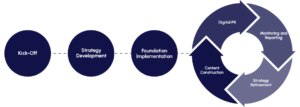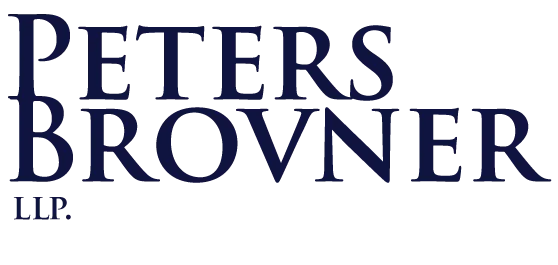Why Personal Injury Law SEO Requires Dedicated Expertise
Generic SEO agencies treat all legal practices the same, applying cookie-cutter strategies that ignore the fundamental differences between practice areas. This one-size-fits-all approach fails spectacularly in personal injury markets where competition is intense and search behavior is unique.
The Unique Personal Injury Law SEO Challenges Facing Firms
Personal injury prospects client journey might include initial symptom searches (“how long after a car accident can pain start”), urgency confirmation (“statute of limitations slip and fall injury”), case value research (“average settlement car accident”), attorney qualification (“best car accident lawyer”), and competitive comparison before selection. Each stage requires different content types, information depth, and trust-building elements. Generic SEO focuses on transactional keywords without supporting the educational and evaluative stages that build authority and capture prospects early in their research.
Personal injury SEO operates on two battlefields simultaneously – local markets where you compete against regional firms for “city + practice area” searches, and national visibility where lead generation companies, directories, and multi-state practices dominate informational content. Effective strategy requires optimizing for local pack placement and geo-modified keywords while building topical authority for broader personal injury content that attracts prospects in research stages. Balancing these priorities while managing limited resources demands expertise that generic agencies lack.
Not all personal injury keywords deliver equal ROI. Medical malpractice and catastrophic injury cases justify significant SEO investment with high case values, while minor auto accidents may not support expensive visibility campaigns. Strategic keyword targeting must account for case acceptance criteria, average settlement values, and resource requirements to focus optimization where it drives profitable growth. Generic SEO chases search volume without understanding case economics, wasting resources on keywords that generate unqualified leads or unprofitable cases.
Personal injury prospects are often accessing websites from accident scenes on mobile devices, dealing with stress and injury while trying to contact attorneys quickly. Website performance, mobile optimization, click-to-call functionality, and form simplicity directly impact conversion rates. Technical SEO for personal injury must prioritize page speed, mobile experience, and conversion rate optimization alongside traditional ranking factors. Generic approaches focus solely on rankings without addressing the technical elements that convert traffic into consultations.
Our Personal Injury Law SEO Approach
9Sail’s personal injury SEO methodology integrates years of legal industry expertise with proven optimization strategies specifically adapted for injury attorney competitive dynamics, buyer behavior, and case economics. We don’t apply generic SEO playbooks. We build customized visibility strategies that account for your specific case types, target markets, competitive landscape, and growth objectives.
Our approach begins with comprehensive competitive analysis identifying keyword opportunities, content gaps, and technical deficiencies limiting your current visibility. From this foundation, we develop integrated SEO programs combining technical optimization, strategic content development, authoritative link building, and local search dominance. Every tactic is designed specifically for your ideal client buyer behavior.
We operate as an extension of your team through our Think Like An Owner™ philosophy, aligning our success with yours by focusing on metrics that matter: organic lead volume, cost-per-lead, client acquisition cost, and actual ROI. Our account teams include legal marketing strategists who understand personal injury practice economics and can speak intelligently about case acceptance criteria, competitive positioning, and strategic growth priorities.
Our Trusted Process
Bespoke Personal Injury Law SEO Strategies
Practice-Specific Keyword Architecture
We develop comprehensive keyword taxonomies organized by case type, injury severity, search intent, and geographic modifiers. This granular approach captures prospects at every stage of the buyer journey while demonstrating specialized expertise that converts high-value cases.
Content Strategy for the Personal Injury Client Journey
Personal injury content must balance immediate conversion needs with educational trust-building across the prospect’s journey from injury to attorney selection. Our content strategies include transactional service pages optimized for “hire now” searches, educational content addressing common questions and concerns, case type deep-dives demonstrating specialized expertise, location pages for geographic targeting, and thought leadership establishing your attorneys as authorities.
Local vs. National SEO Balance
Most personal injury firms need strong local visibility combined with selective national authority building. We optimize for local pack placement through Google Business Profile management, location page development, local citation building, and review generation – critical for capturing “near me” and city-specific searches. Simultaneously, we build national topical authority through comprehensive educational content, thought leadership, and authoritative backlinks that position your firm for informational searches and attract prospects in early research stages who will eventually need local representation.
Technical SEO Foundation
Our technical SEO addresses site speed optimization, mobile responsiveness and usability, Core Web Vitals performance, click-to-call functionality, secure HTTPS implementation, and conversion path optimization. We work hand in hand with your web developer to guide the critical technical SEO fixes that impact your firm’s visibility.
Authoritative Link Building
Personal injury keyword competition means backlink quality and quantity directly impact rankings. Our link acquisition focuses on authoritative, relevant sources – legal directories (Avvo, Justia, FindLaw), local news coverage of your case results or community involvement, legal industry publications, medical and safety organizations, local business associations, and relevant .edu and .gov sources. Every link is acquired through white-hat methods complying with Google guidelines and legal industry ethical standards. We avoid low-quality link schemes that risk penalties and focus on sustainable authority building that compounds over time.










